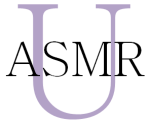 Christian S. is a junior high school student in New York. He is enrolled in an Advanced Placement course and has decided to do a research project about ASMR.
Christian S. is a junior high school student in New York. He is enrolled in an Advanced Placement course and has decided to do a research project about ASMR.
His research question is: “To what extent does Autonomous Sensory Meridian Response (ASMR) impact the levels of anxiety and depression in teens?”
He has created a survey for teenagers to investigate the relationship between watching ASMR videos and mental health.
Christian created questions about ASMR and also incorporated standardized questions from the Becks Depression Inventory and the Becks Anxiety Inventory to help him compare his results to other published results.
His survey is anonymous, specific for teenagers, and will remain open for about the next week.
 I’ve created a new page for the website titled, “
I’ve created a new page for the website titled, “ Alfa Ramirez is pursuing her B.A. in Psychology with a minor in Digital Cinema Arts at Lindenwood University in St. Charles, Missouri, USA.
Alfa Ramirez is pursuing her B.A. in Psychology with a minor in Digital Cinema Arts at Lindenwood University in St. Charles, Missouri, USA. Alfa Ramirez is pursuing her B.A. in Psychology with a minor in Digital Cinema Arts at Lindenwood University in St. Charles, Missouri, USA.
Alfa Ramirez is pursuing her B.A. in Psychology with a minor in Digital Cinema Arts at Lindenwood University in St. Charles, Missouri, USA. There is a common frustration for patients using antidepressants for the first time.
There is a common frustration for patients using antidepressants for the first time. It could still be a long time until ASMR is a clinician-recommended therapy for disorders like insomnia, anxiety, or depression.
It could still be a long time until ASMR is a clinician-recommended therapy for disorders like insomnia, anxiety, or depression.